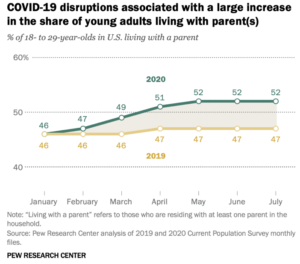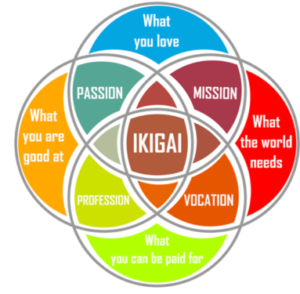Education is never a straight line
One of the things we want, as we get older, is to provide a better life for the next generation after us. But what does a better future mean? Does that mean living longer? Does it mean having more food in the fridge, or more Instagram worthy pictures?
Unfortunately, this gray area of a better future becomes a giant divider of good intentions that turns even the most universal of truths into a political warzone. Sometimes as simple as wanting to make healthcare affordable and accessible to all can bring short-term sacrifices that many refuses to see through.
Violence, specifically the violence led by the war on drugs is universally acknowledged but the implementation is where ones agree upon.Solutions that involve an ounce of sacrifice get thrown out because one’s view of the countries vision of the future, a future with those in the next generation is wildly different.
But simply, it comes down to education. Learning about others, and learning that even decision comes with short term sacrifices and gives across the table.Whether it be the distractions of modern schooling memorization tests or social media information overload people are not learning the skills to get ahead in this ever-changing world.
Long gone are the days of getting a solid SAT score, studying for a degree in the field of your eighteen-year-old self’s choice, and landing that big job that has been waiting for you.Part of that is technology, we are studying and educating ourselves for jobs that don’t exist in fields that haven’t been created yet.
Old computers, slow software, and instructors with just as antiquated experience pile on top of the problem. Then add student loan debt, peer pressure to always be busy, and a society that limits creativity and you are stuck before you know it.So how do you press the exit button on an education track that on the surface and to family and friends look so right but in your core is wrong?
How do you avoid being the lawyer, eyes swollen from months of weekend work counting the minutes to get home? Or the American history major, grasping for a job after job and losing confidence along the way.
Never really processing the very skills they were told would employ them are long gone or still there at a price far below what their expectations were. A broken education system in the United States has led to jaw-dropping statistics such as the one below.

At home, crushed between a mountain of student loan debt and skills which won’t allow them to get hired. What did we do wrong? Where did we mess up? Who is to blame? The reality is the education that was promised was incomplete.
Yes, the path and guardrails were there but what was left out was a wonder, creativity, and the ability to take risks. Education is not about getting a passing grade, or a shiny diploma. It is about digesting information and going from a novice to an expert.
It is about combining two areas that are incongruent to each other and bring them together to create new insights. It is about identifying trends in the world and challenging yourself and the process you are part of and asking for more.
Now you may think that at this point there is no hope for the younger generation or individuals who are focused on their education. I will tell you that is not true.
And that the Corona pandemic has shown us there is another way. Essentially overnight, we advanced years ahead to a life where the digital-first format comes first. Unfortunately, our digital infrastructure isn’t there yet and it’s up to you to take charge.
But there are things you can still do and a few lessons I have learned along the way. Who am I to tell you how to approach your education?
I have worked at multiple fortune five hundred companies in the front office facing customers and closing six-figure deals to being in the back office and working on business processes and internal strategy to accomplish short- and long-term revenue targets.
I have had to learn the rules quickly at new companies, understand the software they use, the language they speak in, and map out a path for success. Multiple times and in public companies and in private companies. I have had to learn who were the leaders who pulled the strings, and the ones who wouldn’t be there long.
learned that you are only as good as the value you provide to the organization and that when everyone only knows one path if you can show a different way you may get ahead. But those are stories for other days.
Lesson # 1
Understand the more value you bring, the higher you will get paid. – Capitalism is a funny thing. People love the functionality and abilities that their shiny new iPhone can bring but when it comes to understanding the innovations behind those technological leaps there is no true understanding of what makes those workers so value. Have you thought about how they get those high paying jobs? Because they have the skills which the market values.
Simply put, capitalism will preserve the value to the most important workers. Whether that be a surgeon or a c-suite executive. When you are thinking about your educational path you need to think about the value you are bringing and wherein the organization you will be providing that value.
Companies survive by bringing in more revenue, so if you are a top salesperson you will have more push than a cost center owner. If you are valuable talent or creating the business you will be worth more than any person supporting the business.
Businesses typically has more money than governments. Large companies over private companies. Profits vs Non-Profits. So, understand what those top people do, what value they bring, and the skills they have. If your educational path is to a job that isn’t providing a ton of value that capitalism appreciates and will continue to pay you for you won’t get paid well for it. Or you need to be on notice that you won’t get paid for it for very long as the market evolves.
Lesson #2
You have to take risks, don’t ever get complacent in your role – Nothing is worse than dodging all the traps of college and young adulthood than undershooting your trajectory.
You finally get the job you want and then what? You figure this is it and you rely on your own company to train you and grow your skills but before you know it the only software you know is the software ONLY your company uses and the only people who know your value are within your organization and chain.
Constantly push yourself into another role or another part of the organization. You should be growing vertically or horizontally every year or two years whether by title or by skillset. Even if you compound just 1% a year think about where you will be in five to ten years. Set yourself up to take risks, and don’t put it all on your company to do it. It is on you. Remember, the world is changing
Lesson #3
Greatness is at the intersection between two areas that you love – How difficult is it to know exactly what you want to do when you are just graduating high school? Or when you are in your early twenties.
Not only do you know how to have a strong understanding of who you are and who you will become, but you have to see if that job will still be the same in the years ahead. Will a pandemic like COVID wipe away the job prospects? Will technology make it out of so out of touch that only a techy would understand? Will it go from being in the person of daily smiling customers that warm your heat to at home or a cubicle farm.
The way to get around this is to not put that much pressure on yourself to get it right so early. Choose two categories.
For example, Sales and Finance, History and Small Businesses, Kids and Education. Bring two pillars of value into one and avoid going all in one area. The Japanese have a formula and a secret to a long and happy life. It is called Ikigai. You need to take what you are good at and what the world needs and bring them together. Even better if you can get paid for it and you love it. But regardless if it’s all four pillars of the Ikigai, you need to appreciate and understand that greatness is always blending two different areas. It is your secret sauce and how no one can do it like you. It’s your unique view and its why you can’t be beaten

Lesson #4
Never stop learning – We spend twenty straight years studying, preparing for tests, and reading about the future and the past all to throw it away once we get a job. I am not talking about continuing education or the training you need to get by.
True learning. Learning about why your company does what It does, learning about others, and what is important to them, learning about the way to communicate or ways to grow. Reading the difficult, digesting outside of your true understanding. We get comfortable.
Well, the truth is, the hirable and the people with the skills you need to get by never stop learning. They don’t have a 9-5 they have a career and their desire for knowledge in their two areas of focus never ends. 24/7/365 they are thinking about it. They are trying to get better. Today you can learn in so many ways. Learning from blogs, downloading podcasts, reading the latest publications or building your own content aka learning by doing. Never stop learning. And make your learning intentional.
Lesson #5
Sometimes it isn’t always what you make, but what you take home. – Unfortunately, education is in such high demand these days, wherever you go you will run into walled gardens. A credit card monthly payment allowing you that PDF of all those points, the software you have to download and pay for, a tuition bill that provides you access to the latest and greatest instructors.
All are fantastic but you must be keenly aware of the opportunity costs of taking on all of this debt or delaying the financial returns. You can have the highest income in the world but if between the government and your debts you are left with a slice or two, how do you feel? You will feel cheated and you will feel like you are barely treading above water.
You need to know the role you are working towards, how much value capitalism assigns to them, and if this value is something that will go up or down in the years ahead. Is it geographically based, and does it have value or ability to be shaken by black swan events such as the Corona Virus? It is more than how much you make, it is how much you take home and you need to remember that. That allows you to take risks.
Wrap it Up
Modern Western Education is more vital than ever but it has fallen short, hampered by political red tape and the speed of technology growth. I have learned this firth hand there is a better way.
True Knowledge comes from lessons you learn along the way. The lessons from coworkers in the hall, the lessons from onboarding in a new role in a company, from identifying a trend in your industry where you are ahead of it. I can’t tell you what to study, and the decisions to make, but I can help you rethink how you think about your education. And the sponge-like mental model that the lessons above provide will help you find your passion like a magnet. And at least will help you become a smart, better member of society.
So take risks, double down on two areas, put extra energy into the income that you see at the end, continue to evolve, and question at work, and soon you will have discovered your own Ikigai.
.

